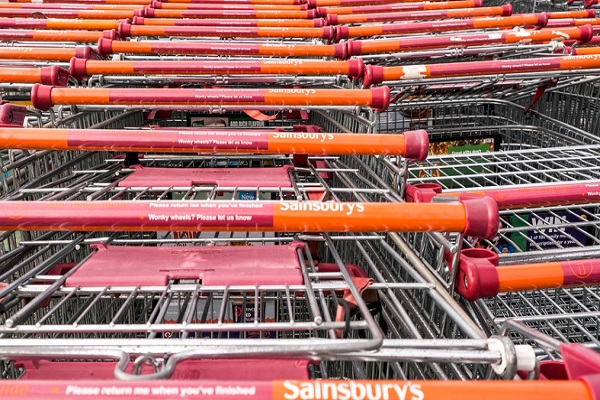ii view: income play Sainsbury's expects tough year
6th July 2022 15:37
by Keith Bowman from interactive investor
Shares for this major supermarket operator are down around a fifth this year. Buy, sell, or hold?

First quarter trading for the 16 weeks to 25 June
- Total sales excluding fuel down 4.5% year-over-year
- Total sales excluding fuel up 5.4% compared to the pre-pandemic 2019/2020
- Full-year profit guidance unchanged
Chief executive Simon Roberts said
“We really understand how hard it is for millions of households right now and that's why we are investing £500 million and doing everything we can to keep our prices low, especially on the products customers buy most often. We're working hard to reduce costs right across the business so that we can keep investing in these areas that customers care most about.”
ii round-up:
Founded in 1869, Sainsbury's (LSE:SBRY) today has over 600 supermarkets, 800 convenience stores and around 1,000 Argos locations in both stand-alone and supermarket locations.
The retailer also operates Sainsbury’s Bank.
For a round-up of this latest trading update, please click here.
ii view:
FTSE 100 index constituent Sainsbury's has a stock market value of around £5 billion. That compares to Tesco (LSE:TSCO) at nearly £19 billion and delivery company Ocado (LSE:OCDO) at around £6.5 billion. Sainsbury's employs over 180,000 people and owns brands including Argos, Habitat, Tu and Nectar. The retailer has committed to investing £1 billion over 15 years towards becoming a Net Zero carbon business across its own operations by 2035.
- Shares for the future: 25 shares I think are good value right now
- How you can own three great businesses for the price of one
- What other investors are reading right now: 30 June 2022
For investors, a cost-of-living crisis for consumers and an uncertain economic outlook offer a tough backdrop. The competition such as Morrisons and ASDA, both under new private equity ownership, are not standing still, while management’s current guidance for full-year adjusted pre-tax profit of up to £690 million is below its last annual outcome of £730 million.
On the upside, a drive to stay competitive on food prices is being pushed via its Aldi price match campaign. Costs, particularly for the Argos business, are being removed, its balance sheet was strengthened over its last financial year, while unsecured lending balances are growing at its banking business as it continues to be simplified. On balance, and while some caution remains sensible, a defensive offering and a forecast dividend yield of over 5.5% should be sufficient to keep income investors interested.
Positives:
- A cost saving programme ongoing
- Attractive dividend payment (not guaranteed)
Negatives:
- General merchandise sales down 11.2 year-over-year
- Intense sector competition
The average rating of stock market analysts:
Hold
These articles are provided for information purposes only. Occasionally, an opinion about whether to buy or sell a specific investment may be provided by third parties. The content is not intended to be a personal recommendation to buy or sell any financial instrument or product, or to adopt any investment strategy as it is not provided based on an assessment of your investing knowledge and experience, your financial situation or your investment objectives. The value of your investments, and the income derived from them, may go down as well as up. You may not get back all the money that you invest. The investments referred to in this article may not be suitable for all investors, and if in doubt, an investor should seek advice from a qualified investment adviser.
Full performance can be found on the company or index summary page on the interactive investor website. Simply click on the company's or index name highlighted in the article.